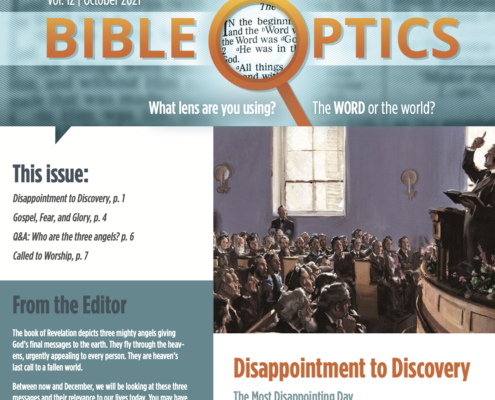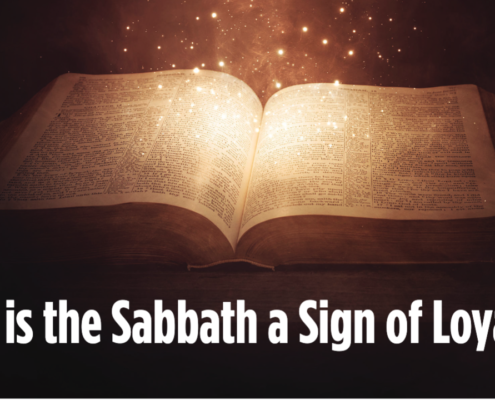
The kingdom of heaven is like… One day the C.E.O of a fortune 500 investment company sat in his corner office 40 stories up. As he overlooked the financial district of lower Manhattan, he decided he wanted to invest more of his wealth to provide good things for his neighborhood. He was excited about his new business venture. That very day he called his top three investment banking associates to the office and told them his wish. They were eager to help him make this dream a reality. The C.E.O gave $5 million to the first associate, $2 million to the second, and $1 million to the third. ‘See what you can do for our neighborhood with this money,’ he counseled. At first the associates were unsure just how they would deal with the money they had just received.
After much contemplation, the first associate decided to invest in creating jobs in low-income neighborhoods. By so doing, he not only helped many people find jobs, but created five million more dollars for his C.E.O. The second associate invested in the shipping business. This improved the community and brought in an additional revenue of $2 million. The final associate was less adventurous. He simply placed the money in his desk and kept it safe, believing that this was the best way to protect the C.E.O.’s money.
When the C.E.O. reviewed the annual reports of the company, he noticed the investments the first two associates had made with the money. They had proved so profitable that he promoted them for their efforts, making them directors over a much greater portion of the company. The third employee, however, was carefully scrutinized for his delinquency and laziness. This associate had chosen not do anything valuable with the money. The CEO had no other choice but to fire the lazy man.
Consume, Consume, Consume
Jesus told His version of the “the parable of the talents” in Matthew 25:14-30. His point? His followers are to be producers, not consumers.
Yet we live in a consumer’s paradise, don’t we? One-click on Amazon will bring almost anything to your home address. Hungry? A moment on your smartphone and 20 minutes later your favorite takeout is delivered to your doorstep. Our collective instant gratification lifestyle costs $10 trillion annually and has increase by 1.5 percent per year for 10 years (U.S consumer spending).
Our consumerism tends to rob us of our spiritual lives. Many of us have become spiritual consumers rather than producers.
What You Have is not Yours
The servant in Christ’s parable who does not invest his talent is a fitting representation of a typical modern-day consumer. The servant’s problem, which eventually led to his dismissal, was that he took what his master gave him and did nothing profitable with it. Today, this same attitude is what is causing our personal consumption expenditures to increase every single year. Our unwritten slogan is “Never enough! Give me more.”
We have stockpiled stuff and hoarded the blessings God meant for us to share with others. The parable reminds us of one simple truth. What you have is not your own. Everything belongs to God. He gives us what we need so we can be profitable Christians. If singing is your talent, then use that to draw souls to the kingdom. If you are an artist, create art that glorifies God. If you are an engineer, use your career to influence people to follow Christ.
Use what God has given you for the good of others. Do not be a spiritual glutton, just satisfying your own personal needs. Instead do good to others, not just yourself.
Faithful with the Few
“Well done, good and faithful servant; you have been faithful over a few things, I will make you ruler over many things. Enter into the joy of your lord” (Matthew 25:23). The two words we should strive to hear at the end of our time on this earth are, “well done”. The servants who will hear these words are those that were not merely consumers but were also contributors. They were faithful in the small things that God gave them. Whether it was time, money or ability, they used it to multiply the Kingdom of heaven.
It is important to notice that the employees invested all they were given. They didn’t invest what they didn’t have. They simply invested what they were given. This is an important lesson for the growing Christian. God does not ask you to give what you do not have. Yet Christ has given you something of the greatest value, the gospel. You are not simply to go to church every week, consume the gospel and keep it to yourself. This is how we have created unprofitable Christians and spiritual hoarders. As a Christian we are to learn the gospel, in order to give the gospel with others. Simply put – we Learn – to Give.
How to Be a Producer
- Identify your talents – What are some of the things that you are good at, i.e encouraging others, preparing food, logistics, etc. (1 Peter 4:10)
- Look for the needs – Identify areas in your community where you can be the most effective. Ask your local pastor what roles need to be filled in your church. (Nehemiah 1 & 2)
- Seek help from your local pastor – Ministry can be a heavy task. Ask your local pastor for help to get the job done. (Ecclesiastes 4:9)
- Be creative – We serve a creative God, and He has imbued us all with imagination. Seek new and inventive ideas in serving others. (Ephesians 2:10)
- Pray, Pray, Pray – The Holy Spirit is the one that gives gifts and enables us to use them. Seek His help and guidance. (1 Thessalonians 5:16)
Your greatest duty on earth is to take that which Christ has given you and use it for good. Luke 12:48 says, “To whom much is given, much will be required”. Do not become consumed by your own consumption, for this will lead you to darkness and pain. God has given you a great task. Be a profitable servant for His kingdom and invest in others.












Leave a Reply
Want to join the discussion?Feel free to contribute!